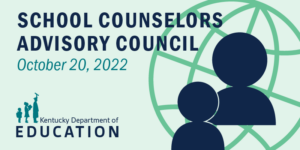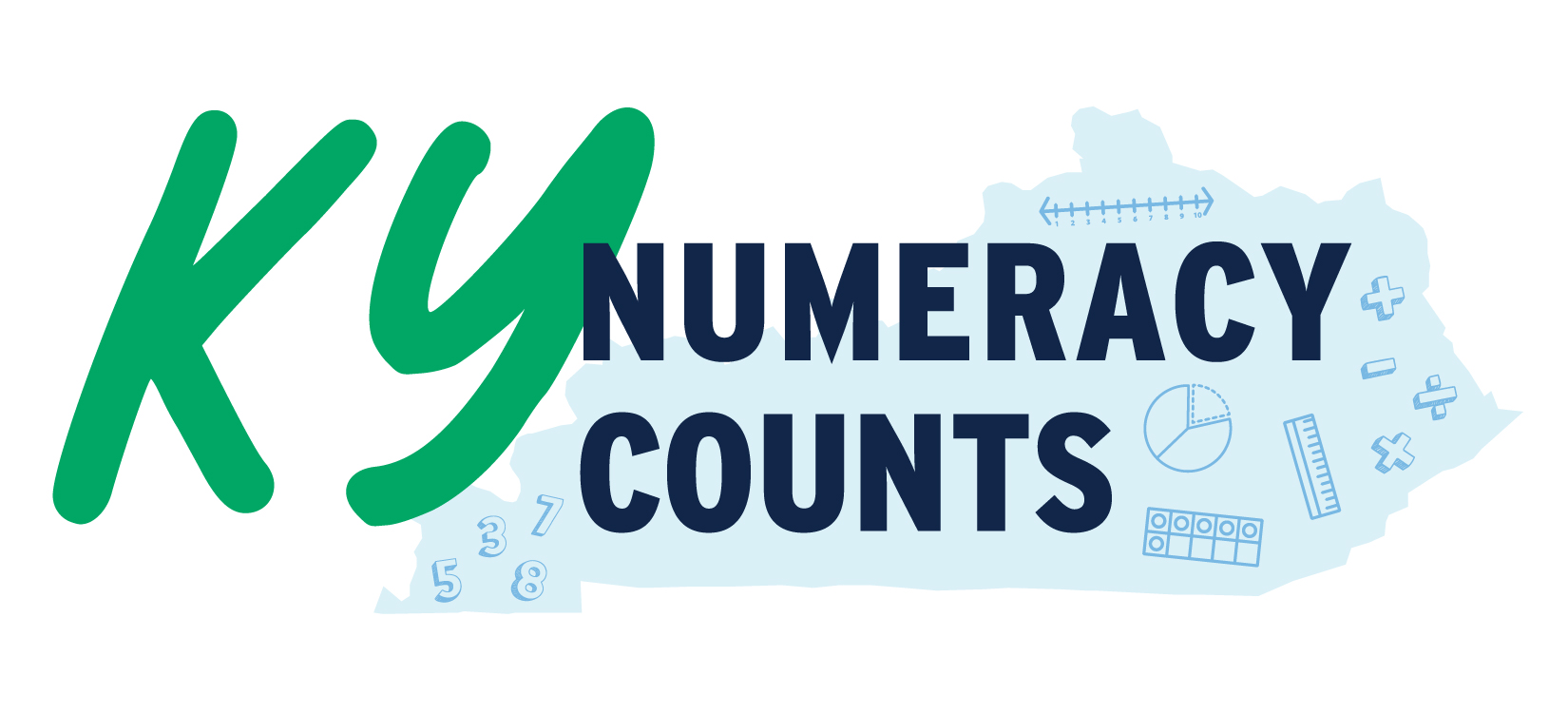
The Kentucky Department of Education’s (KDE’s) School Counselor Advisory Council (SCAC) received updates on the Use of Time survey and the Kentucky Framework of Best Practices for School Counselors at its Oct. 20 meeting.
Heather Bushelman, program coordinator for comprehensive school counseling and member of the Diversity, Equity, Inclusion and Belonging (DEIB) team in KDE’s Office of Teaching and Learning, shared updates regarding changes to Senate Bill (SB) 102, related to the Use of Time survey and school-based mental health service providers.
Passed during the 2022 regular session, SB 102 requires superintendents to report annually to KDE by Nov. 1 on a number of items related to mental health service providers, including:
- The number of school-based mental health service providers in a district;
- The position held;
- The placement of school-based mental health service providers in a district;
- The certification or licensure held;
- Source of funding for each position;
- A summary of the job duties by each school-based mental health service providers; and
- The percentage of time devoted to each duty over the course of the year.
“These school-based mental health positions are mentioned in this bill to start collecting some data and information about what these stakeholders are doing within our schools,” said Bushelman.
She also said KDE will use the Use of Time survey results to assess what supports can be offered to help schools ensure more of a counselor’s time is being used for appropriate activities because it is “ultimately about what’s best for kids.”
In addition to this data-collection, statewide trainings are taking place for superintendents and a variety of administrators to inform them of the legislation and the purpose of the use of time data collection.
Kentucky Framework of Best Practices for School Counselors
The newly released American School Counselor Association (ASCA) Ethical Standards will be added to the Kentucky Framework of Best Practices for School Counselors, along with a Comprehensive School Counseling Sample Template in December. Bushelman also said that KDE would like feedback from the council on the creation of statewide mission and vision statements that will be added into the framework. The advisory council members will email Bushelman with suggestions.
In collaboration with the KDE Multi-Tiered System of Supports (MTSS) team and School Counselors 4 MTSS, Bushelman said work has begun to create a Kentucky version of the MTSS Triangle, aligned with the ASCA Model. This multi-tiered systems of support model will guide school counselors on how to best serve students. She said the new model will be released in February.
Diversity, Equity, Inclusion and Belonging (DEIB) Updates
The council received updates from KDE’s DEIB Director Damien Sweeney, and Nicole Fields, KDE’s director of community engagement.
Sweeney said the DEIB team is working with the Kentucky Education Development Corporation and the University of Louisville to create six professional learning modules for educators revolving around DEIB. Two modules will be on building a comprehensive school counseling program and framework. Micro-credentials will be offered for completion of the modules. KDE also is partnering with Kentucky Educational Television to create a professional learning module with a micro-credential on safe spaces.
The DEIB team is working on A4 modules for districts not participating in the Equity Playbook, which will help introduce the idea of DEIB. The modules are meant to be reflective to help educators think about how they can support all students.
Fields shared that the DEIB podcast, “Lifting Kentucky’s Voices,” will be available soon.
“Our vision is that every educator and student has a sense of belonging, so we want to let Kentucky know about what we are doing as educators to build that sense of belonging,” said Fields.
In other business, the council:
- Discussed self-care practices and what self-care looks like for counselors, teachers and students.
- Heard about the 2022 Calming Space grant winners, which include: Beechwood Elementary (Beechwood Independent); Crosby Middle School (Jefferson County); East Perry Elementary (Perry County); Nelson County Early Learning Center; Painted Stone Elementary (Shelby County); Ponderosa Elementary, Cannonsburg Elementary, Catlettsburg Elementary and Summit Elementary (all in Boyd County); Red Cross Elementary (Barren County); Sublimity Elementary (Laurel County); and Webster County High School. Applicants had a choice of applying as a school or district. These schools/districts will receive $10,000 each to begin implementing and building their calming space initiative, which includes options for all students schoolwide, as well as family engagement.




Leave A Comment